Capsule Review: 2014 Cadillac CTS V Sport
This is not a luxury sedan. It is not an upscale family sedan. The Cadillac CTS V Sport is a performance car sheathed in an overtly Cadillac body.
Lightweight body parts. Brembo brakes with optional performance linings. Two turbos. Two driven wheels out back. Staggered tires with 275s out back.
It’s not the numbers – 420 horsepower, 430 lb-ft of torque, 0-100 mph in 10.5 seconds according to Car & Driver, braking from 60 to rest in 103 feet according to Edmunds – that turn the CTS from an indirect successor of the Fleetwood into the most dynamic car in its class. No, the sensation of athleticism in the CTS V Sport is not entirely quantifiable.
The overwhelming impression that the CTS V Sport is a sports car, rather than a car that relies on feature count or historic imagery to excite, is an impression gleaned from a few pushes of the console-mounted driver-selectable button: Tour becomes Sport becomes Track.
Thing is, even in that most comfort-oriented Tour mode, the CTS V Sport comes across as a lively package, like a frisky little subcompact hatchback which suggests a performance version with stiffened suspension and a bit more power would be a home run.
Except, in the CTS V Sport, power isn’t lacking to begin with, and rather than requiring a completely different car, button pushes are all that’s necessary. In other words, this isn’t Kia’s FlexSteer, which gradually weights up and always feels artificial, none of its three modes hitting the mark.
The CTS’s available options create new experiences.
One would expect a car that steers with this level of accuracy and immediacy, a car that can be tossed into a corner and further realigned in the case of a mole running across the road, would suffer from ride imperfections. Even in Tour mode, the CTS V Sport is firm, but don’t mistake firm for harsh. Firm equals level; firm doesn’t detract from straight-ahead tracking on the highway. There’s no denying the increased aggression of Sport and especially Track modes, but the V Sport easily remains within the borders of comfort, far from a punishing zone. Whether this is down to 50/50 weight distribution or nitpicky engineers who sought perfection, I don’t care.
To drive a car that can do the things this car can do when it’s being hustled, while still managing to feel even in that high-octane moment like a device that isolates only what its driver wants to isolate, is to not want to drive other cars.
GM Canada delivered the CTS V Sport to my driveway for one week, a week in which I drove around town far more often than necessary. I was prone to forgetting things at the grocery store. Oops, better head back out. Everybody went for extended ride-alongs which routinely featured multiple on-ramps. I had read and I had been told that this was a special car. People can’t help but spout the specs in a can-you-believe fashion. This isn’t even the craziest CTS, they’d all say.
But I didn’t keep getting back in the V Sport for completely unnecessary drives to nowhere because of the specs, because of the bold front grille or the cooled seats or the torque that seemingly swelled as speeds increased. I would have been similarly excited about routinely driving the CTS V Sport if it was a 320-horsepower car. This level of interaction and athleticism would have auto reviewers excited regardless of the class in which the car competes, but I couldn’t help but be especially pleased because of the increasing softness in a segment which used to be full of sports sedans, softness that’s thankfully missing in this Cadillac.
By the end of its stay, I realized that we thought nothing of travelling in a group of four adults with a rear-facing child seat in the back, as well. It dawned on me that, given the frequency with which I applied heavy doses of throttle and the little time spent on highways, fuel economy of 19.9 mpg was actually quite good. The user interface wasn’t as frustrating as it was in the ATS last year or even the SRX earlier this year, but I wonder what would be so terribly wrong with buttons that depress.
The CTS comes across as a very well-built car with high-grade materials. Yet that left-side signal stalk is disappointing, not because you’ll see a similar piece in lesser GM vehicles, but because it is textured and operates like a low-grade item in a rather expensive car, because it resides directly beside magnesium shift paddles. Those paddles, by the way, allow a driver to control the 8-speed transmission with less intelligence than the transmission itself possesses.
It only makes sense that the CTS’s disappointing sales performance relates to the previously mentioned expense. It’s true, the CTS is a perfectly reasonable value in comparison with its newfound direct rivals like the BMW 5-Series and Mercedes-Benz E-Class. But the couple who visits a Cadillac dealer as their three-year-old CTS’s lease expires is likely to be somewhat dismayed by the new car’s elevated price and equally discouraged by the size of the ATS’s rear seat. ATS sales are down 21% this year. CTS volume is level so far this year but fell 10% in June and 29% in July. It’s not selling like it used to.
Personally, I am also put off by CUE, but not to the extent that I would not learn to cope with its inefficiencies over time. Unfortunately, I’ve been told that even at one-third the cost, pre-owned a few years from now, the current Cadillac CTS V Sport will never be featured as this family’s main car. Everyone agreed that sitting in the CTS was a lot like sitting in a cave, no matter how high you raise the seats. Mrs. Cain, lacking all manner of WNBA-like stature, struggled mightily to see the outside world. At 5-foot-11, I myself felt enveloped, and not in a good way. Blind spot monitoring and lane departure warnings and cameras assist, but they don’t overcome low roofs and high beltlines.
Perhaps she would feel different if she recognized the CTS V Sport for what it is, rather than what it looks like. This is a performance car, not a roomy luxury sedan.
We would also feel different if the CTS V Sport didn’t cost so much. Which, in a way, it doesn’t. Cadillac’s $59,995 V Sport and $69,995 V Sport Premium become $56,995 and $66,995 cars, respectively, with current $3000 discounts. That’s a start. Setting style aside, a lowering of the beltline would be helpful if I’m to make my case, too.
More by Timothy Cain
Latest Car Reviews
Read moreLatest Product Reviews
Read moreRecent Comments
- Peter Buying an EV from Toyota is like buying a Bible from Donald Trump. Don’t be surprised if some very important parts are left out.
- Sheila I have a 2016 Kia Sorento that just threw a rod out of the engine case. Filed a claim for new engine and was denied…..due to a loop hole that was included in the Class Action Engine Settlement so Hyundai and Kia would be able to deny a large percentage of cars with prematurely failed engines. It’s called the KSDS Improvement Campaign. Ever hear of such a thing? It’s not even a Recall, although they know these engines are very dangerous. As unknowing consumers load themselves and kids in them everyday. Are their any new Class Action Lawsuits that anyone knows of?
- Alan Well, it will take 30 years to fix Nissan up after the Renault Alliance reduced Nissan to a paltry mess.I think Nissan will eventually improve.
- Alan This will be overpriced for what it offers.I think the "Western" auto manufacturers rip off the consumer with the Thai and Chinese made vehicles.A Chinese made Model 3 in Australia is over $70k AUD(for 1995 $45k USD) which is far more expensive than a similar Chinesium EV of equal or better quality and loaded with goodies.Chinese pickups are $20k to $30k cheaper than Thai built pickups from Ford and the Japanese brands. Who's ripping who off?
- Alan Years ago Jack Baruth held a "competition" for a piece from the B&B on the oddest pickup story (or something like that). I think 5 people were awarded the prizes.I never received mine, something about being in Australia. If TTAC is global how do you offer prizes to those overseas or are we omitted on the sly from competing?In the end I lost significant respect for Baruth.



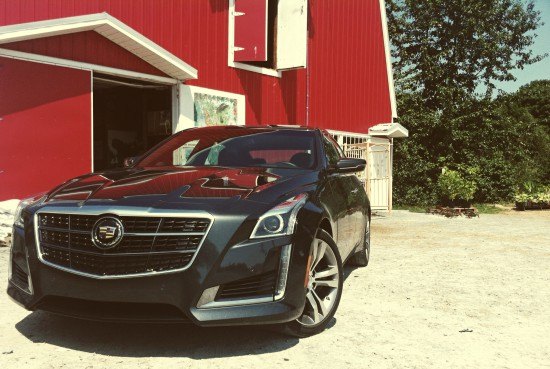



















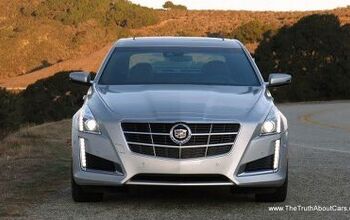
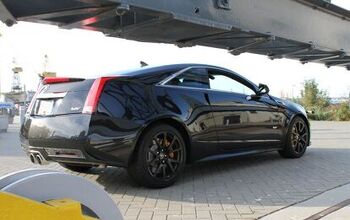
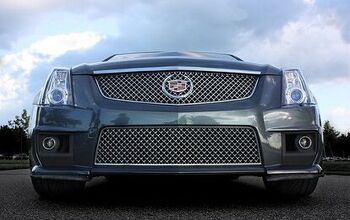
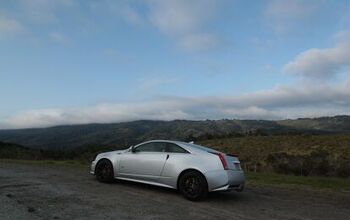
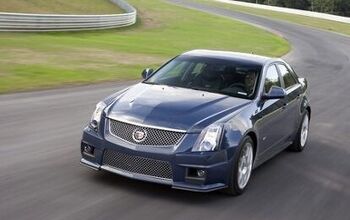









Comments
Join the conversation
So close and yet so far.... If this car offered: - an adult-sized rear seat - an AWD high-performance version - a $5-8K lower price point ...it might start to gain some market traction, IMO.
Cadillac's web site shows the 2014 CTS-V (not the CTS V Sport) starting at 65k. Why would I pay 60k when for ~10% more I can get the real top of the line? My feeling is that they are priced too close together and too similarly purposed. Actual transaction prices may end up making the gap bigger and I have a feeling the used market prices will also have a bigger gap but as someone who is interested in buying a four door muscle car in the next few years the pricing on this just doesn't make sense. Will be interesting to see what the 2015 pricing and trim levels look like and if the pricing gap between the "sportier" and "sportiest" versions grows wider.